Regulation of International Financial Markets and International Banking
This research group analyses causes and consequences of banks' international activities and the regulatory framework they operate in.
Internationally active banks can facilitate an efficient international allocation of capital and provide channels for international risk sharing. But they can also be a source of financial instabilities themselves, thus contributing to international contagion and risk-shifting. This is one reason for the current re-regulation of international banking.
The research group contributes to the literature in three ways. First, the group empirically analyses the channels through which shocks are transmitted by internationally active banks. Second, the group analyses the build-up of aggregate imbalances in integrated banking markets and resulting consequences for the real economy. Third, the group analyses the impact of changes in banking supervision and regulation on (inter)national activities of banks, with a special focus on the European integration process.
IWH Data Project: International Banking Library
Research Cluster
Economic Dynamics and StabilityYour contact

Mitglied - Department Financial Markets
EXTERNAL FUNDING
07.2017 ‐ 12.2022
The Political Economy of the European Banking Union
European Social Fund (ESF)
Causes of national differences in the implementation of the Banking Union and the resulting impact on financial stability.
01.2015 ‐ 12.2017
Dynamic Interactions between Banks and the Real Economy
German Research Foundation (DFG)
Refereed Publications
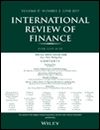
Monetary Policy through Exchange Rate Pegs: The Removal of the Swiss Franc‐Euro Floor and Stock Price Reactions
in: International Review of Finance, No. 4, 2021
Abstract
The Swiss National Bank abolished the exchange rate floor versus the Euro in January 2015. Using a synthetic matching framework, we analyze the impact of this unexpected (and therefore exogenous) policy change on the stock market. The results reveal a significant level shift (decline) in asset prices following the discontinuation of the minimum exchange rate. As a novel finding in the literature, we document that the exchange‐rate elasticity of Swiss asset prices is around −0.75. Differentiating between sectors of the Swiss economy, we find that the industrial, financial and consumer goods sectors are most strongly affected by the abolition of the minimum exchange rate.

Macroprudential Policy and Intra-Group Dynamics: The Effects of Reserve Requirements in Brazil
in: Journal of Corporate Finance, December 2021
Abstract
We examine whether liquidity dynamics within banking groups matter for the transmission of macroprudential policy. Using matched bank headquarters-branch data for identification, we find a lending channel of reserve requirements for municipal branches whose headquarters are more exposed to the policy tool. The result is driven by the 2008–2009 crisis and is stronger for state-owned branches, especially when being less profitable and liquidity constrained. These findings suggest the presence of cross-regional distributional effects of macroprudential policies operating via internal capital markets.

Global Syndicated Lending during the COVID-19 Pandemic
in: Journal of Banking and Finance, December 2021
Abstract
This paper examines the pricing of global syndicated loans during the COVID-19 pandemic. We find that loan spreads rise by over 11 basis points in response to a one standard deviation increase in the lender's exposure to COVID-19 and over 5 basis points for an equivalent increase in the borrower's exposure. This implies excess interestof about USD 5.16 million and USD 2.37 million respectively for a loan of average size and duration. The aggravating effect of the pandemic is exacerbated with the level of government restrictions to tackle the virus's spread, with firms’ financial constraints and reliance on debt financing, whereas it is mitigated for relationship borrowers, borrowers listed in multiple exchanges or headquartered in countries that can attract institutional investors.
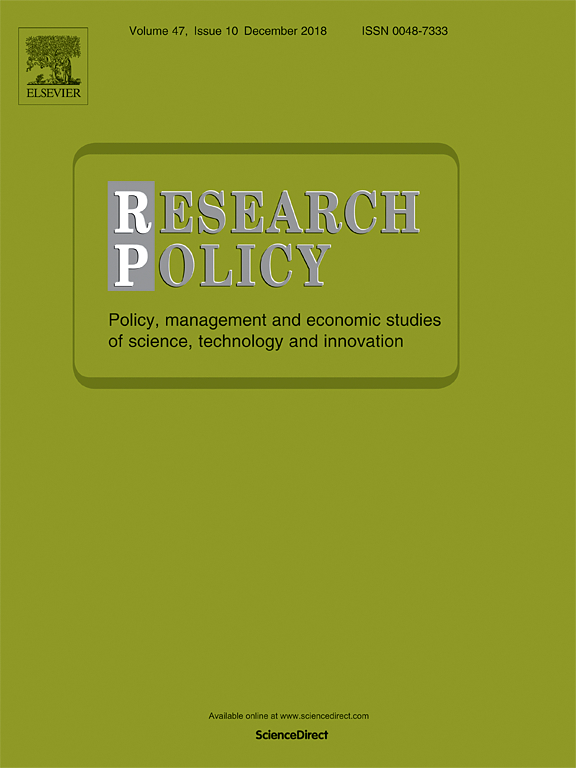
Does Gender Affect Innovation? Evidence from Female Chief Technology Officers
in: Research Policy, No. 9, 2021
Abstract
In this paper, we examine the impact of female Chief Technology Officers (CTOs) on corporate innovation. We find that firms with female CTOs are more innovative (as captured by both patent counts and patent citations) than firms with male CTOs. This effect is more pronounced for firms with a stronger innovation-supportive culture, firms with female CEOs, and when female CTOs are more powerful. Using mediation analyses, we further validate that female CTOs’ transformational leadership style is a plausible mechanism through which they affect innovation positively.
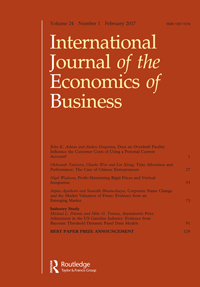
Quid Pro Quo? Political Ties and Sovereign Borrowing
in: Journal of International Economics, November 2021
Abstract
Do stronger political ties with a global superpower improve sovereign borrowing conditions? We use data on voting at the United Nations General Assembly along with foreign aid flows to construct an index of political ties and find evidence that suggests stronger political ties with the US is associated with both better sovereign credit ratings and lower yields on sovereign bonds especially among lower income countries. We use official heads-of-state visits to the White House and coalition forces troop contributions as additional measures of the strength of political ties to further reinforce our findings.
Working Papers
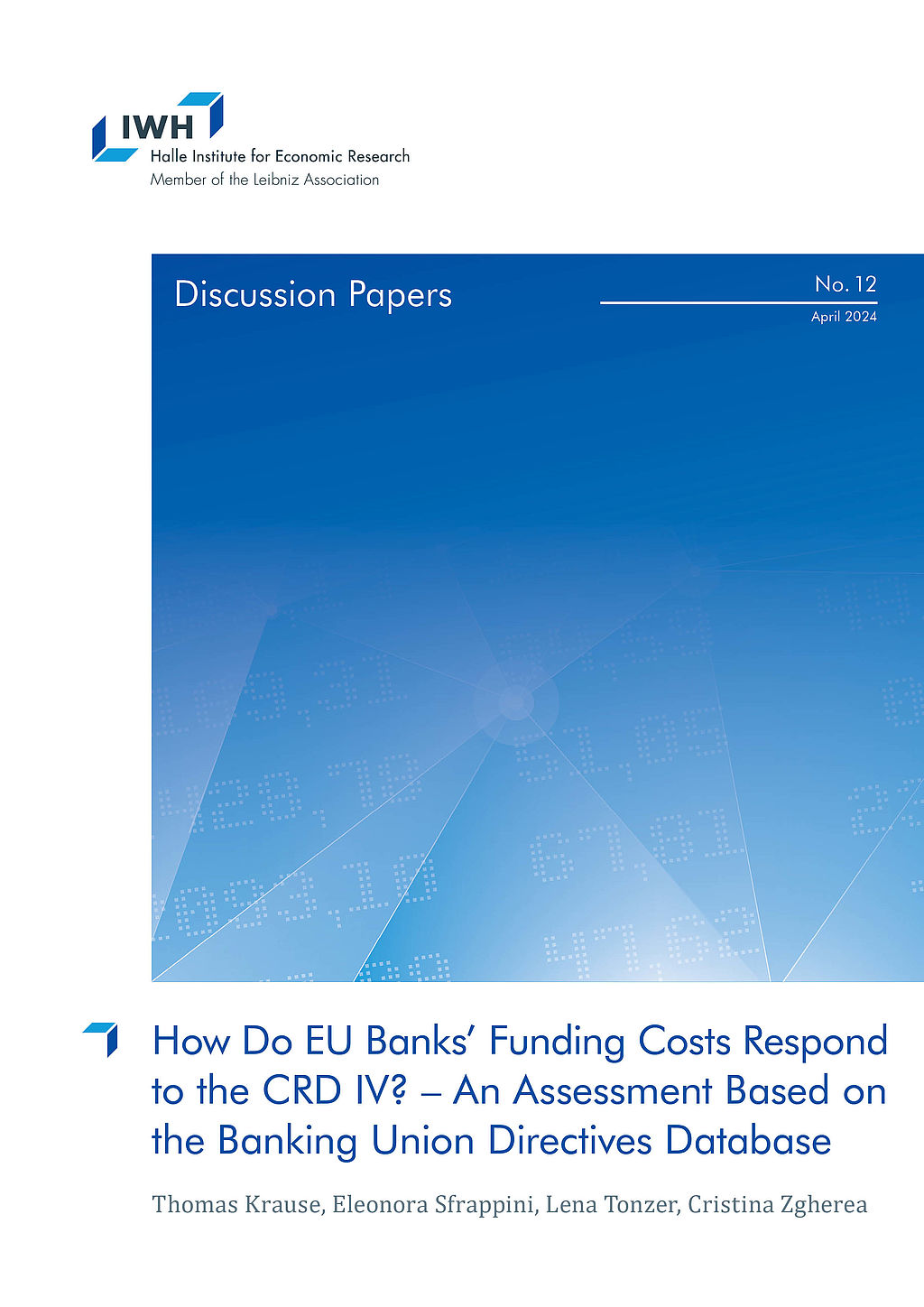
How Do EU Banks’ Funding Costs Respond to the CRD IV? An Assessment Based on the Banking Union Directives Database
in: IWH Discussion Papers, No. 12, 2024
Abstract
The establishment of the European Banking Union constitutes a major change in the regulatory framework of the banking system. Main parts are implemented via directives that show staggered transposition timing across EU member states. Based on the newly compiled Banking Union Directives Database, we assess how banks’ funding costs responded to the Capital Requirements Directive IV (CRD IV). Our findings show an upward trend in funding costs which is driven by an increase in cost of equity and partially offset by a decline in cost of debt. The diverging trends are most present in countries with an ex-ante lower regulatory capital stringency, which is in line with banks’ short-run adjustment needs but longer-run benefits from increased financial stability.
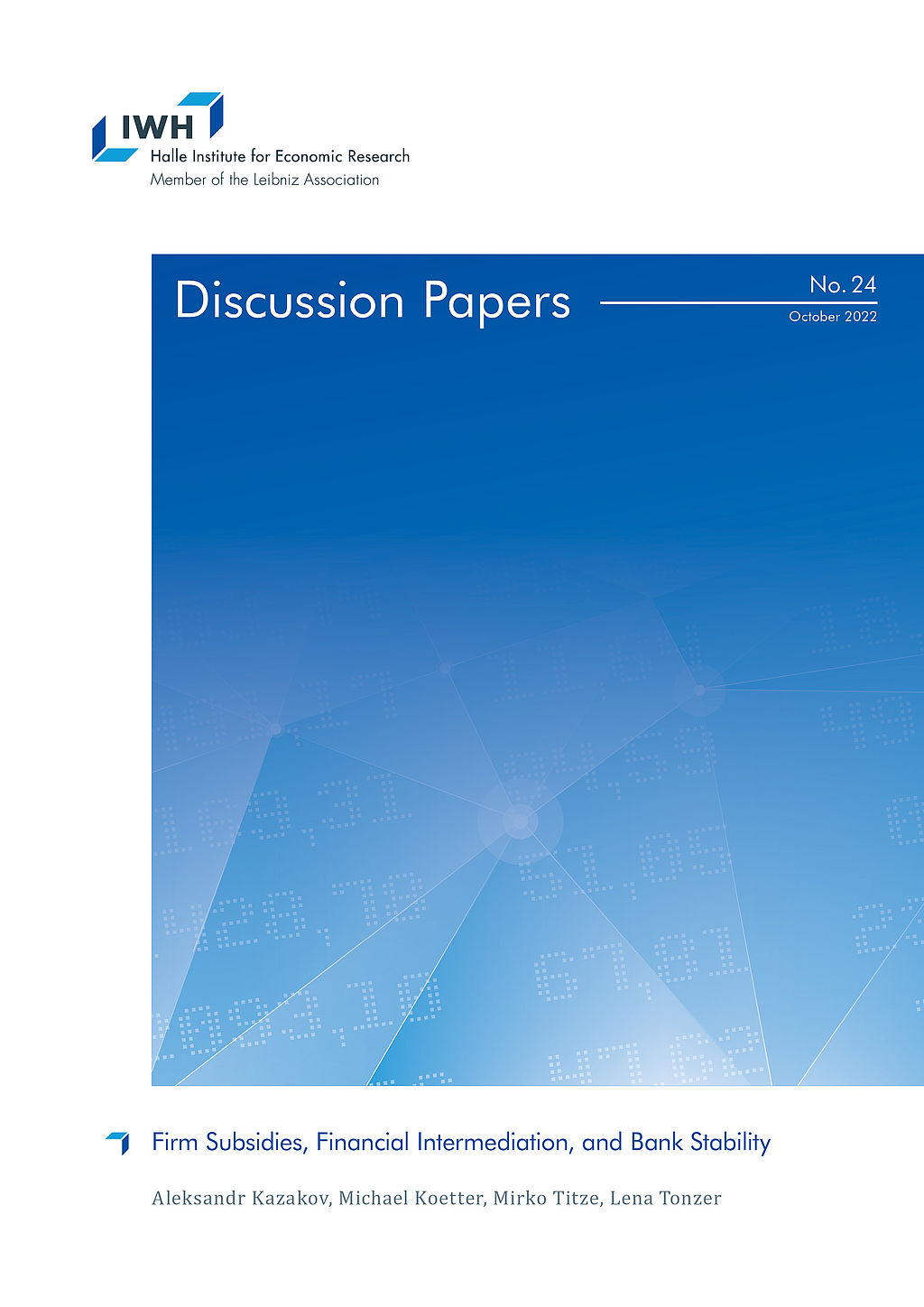
Firm Subsidies, Financial Intermediation, and Bank Stability
in: IWH Discussion Papers, No. 24, 2022
Abstract
We use granular project-level information for the largest regional economic development program in German history to study whether government subsidies to firms affect the quantity and quality of bank lending. We combine the universe of recipient firms under the Improvement of Regional Economic Structures program (GRW) with their local banks during 1998-2019. The modalities of GRW subsidies to firms are determined at the EU level. Therefore, we use it to identify bank outcomes. Banks with relationships to more subsidized firms exhibit higher lending volumes without any significant differences in bank stability. Subsidized firms, in turn, borrow more indicating that banks facilitate regional economic development policies.
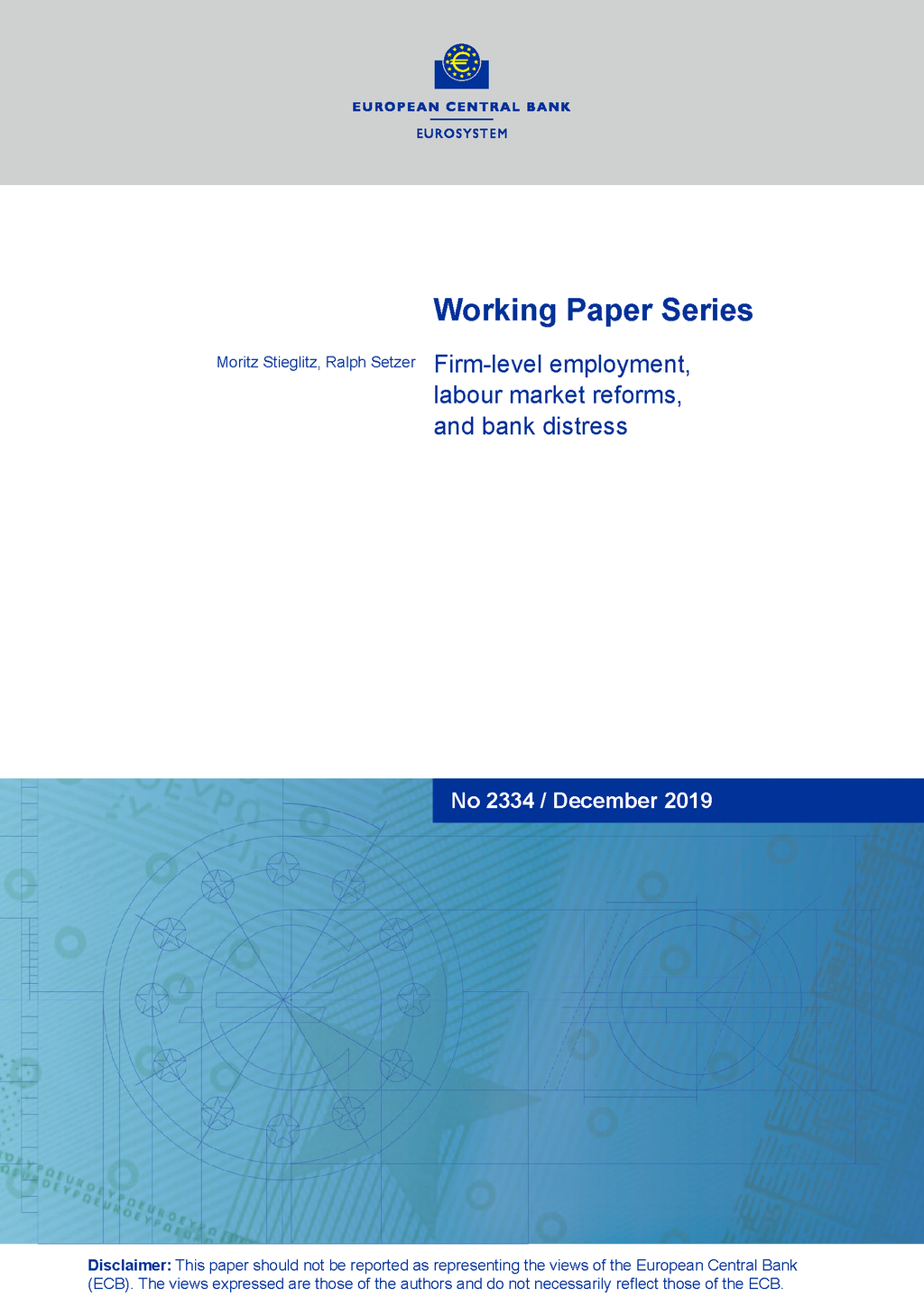
Climate Change-Related Regulatory Risks and Bank Lending
in: ECB Working Paper, No. 2670, 2022
Abstract
We identify the effect of climate change-related regulatory risks on credit real-location. Our evidence suggests that effects depend borrower's region. Following an increase in salience of regulatory risks, banks reallocate credit to US firms that could be negatively impacted by regulatory interventions. Conversely, in Europe, banks lend more to firms that could benefit from environmental regulation. The effect is moderated by banks' own loan portfolio composition. Banks with a portfolio tilted towards firms that could be negatively a affected by environmental policies increasingly support these firms. Overall, our results indicate that financial implications of regulation associated with climate change appear to be the main drivers of banks' behavior.
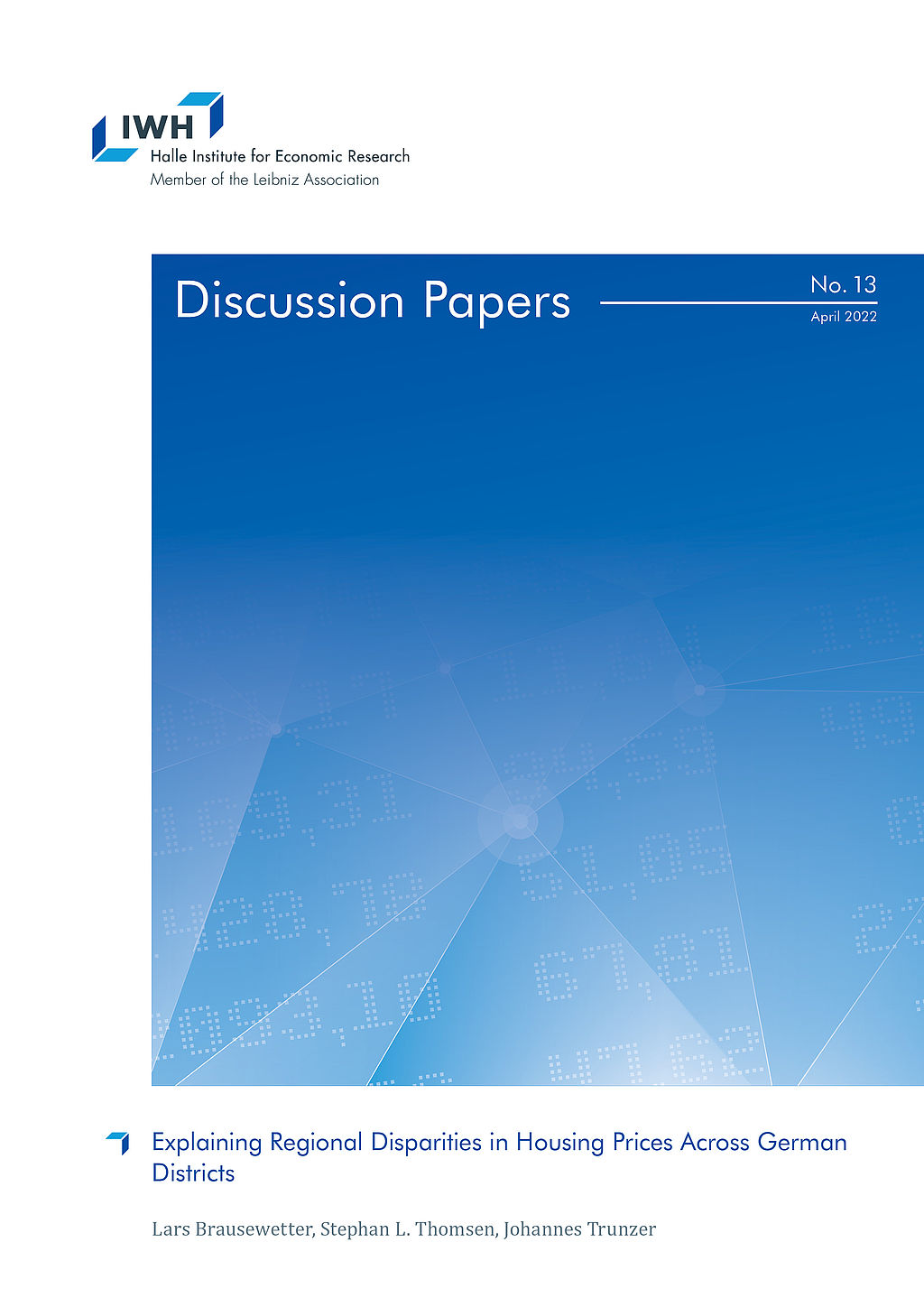
Explaining Regional Disparities in Housing Prices Across German Districts
in: IWH Discussion Papers, No. 13, 2022
Abstract
Over the last decade, German housing prices have increased unprecedentedly. Drawing on quality-adjusted housing price data at the district level, we document large and increasing regional disparities: Growth rates were higher in 1) the largest seven cities, 2) districts located in the south, and 3) districts with higher initial price levels. Indications of price bubbles are concentrated in the largest cities and in the purchasing market. Prices seem to be driven by the demand side: Increasing population density, higher shares of academically educated employees and increasing purchasing power explain our findings, while supply remained relatively constrained in the short term.
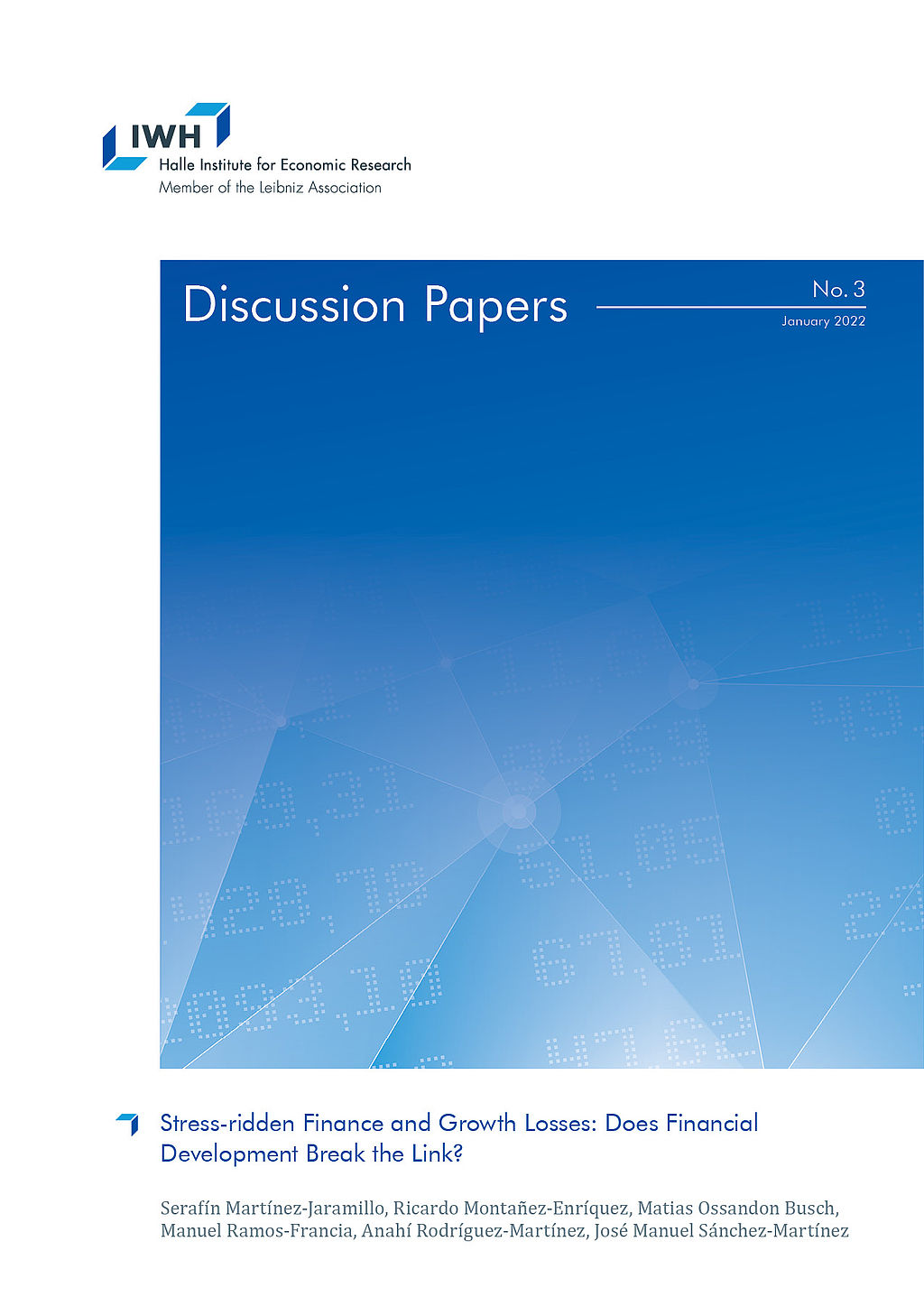
Stress-ridden Finance and Growth Losses: Does Financial Development Break the Link?
in: IWH Discussion Papers, No. 3, 2022
Abstract
Does financial development shield countries from the pass-through of financial shocks to real outcomes? We evaluate this question by characterising the probability density of expected GDP growth conditional on financial stability indicators in a panel of 28 countries. Our robust results unveil a non-linear nexus between financial stability and expected GDP growth, depending on countries’ degree of financial development. While both domestic and global financial factors affect expected growth, the effect of global factors is moderated by financial development. This result highlights a previously unexplored channel trough which financial development can break the link between financial (in)stability and GDP growth.














